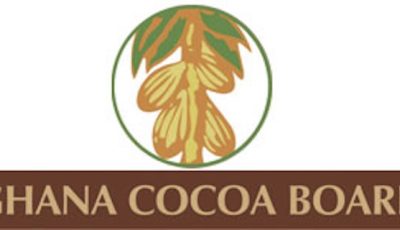Warning: Undefined array key "dirname" in /home/anapuafm/public_html/wp-content/themes/anapuafm/include/plugin/filosofo-image/filosofo-custom-image-sizes.php on line 133
Warning: Undefined array key "extension" in /home/anapuafm/public_html/wp-content/themes/anapuafm/include/plugin/filosofo-image/filosofo-custom-image-sizes.php on line 134
Former COCOBOD CEO, Dr Opuni charged with 27 counts
The state has filed a case of causing financial loss against Dr Stephen Kwabena Opuni, a former Chief Executive Officer (CEO) of the Ghana Cocoa Board (COCOBOD).
Charged along with Dr Opuni is one Seidu Agongo and Agricult Ghana Limited.
A total of 27 charges have been leveled against them, Graphic Online has gathered
The charges are on abetment of crime and defrauding by false pretence, willfully causing financial loss to the state, contravention of the Public Procurement Act, manufacturing fertilizer without registration, money laundering and corruption by public officer.
The case being handled by a Chief State Attorney, Evelyn D. Keelson for the Attorney General is set to be called on Friday, March 23, 2018 at the Accra High Court.
In February 2017, the Economic and Organised Crime Office (EOCO) froze the assets of Dr Opuni as part of investigations into his period as CEO of COCOBOD.
He is alleged to have mismanaged the cocoa sector during his tenure.
Dr Opuni was relieved of his post on January 12, 2017.
This is the second of many alleged corruption cases the New Patriotic Party (NPP) government intends to prosecute.
Already, the former Director General of the National Communications Authority (NCA), William Tevie and some other officers have been hauled before court for causing financial loss of about Ghc4million which was to be used to procure surveillance equipment for National Security.
Out of the 27 charges against them, six of them are on counts of abetment of crime namely, defrauding by false pretense contrary to sections 20(1) and 131(1) of the Criminal Offenses Act, 1960 (Act 29).
Abetment of crime and defrauding by false pretence
Dr Stephen Kwabena Opuni between January 2014 and November 2014 is said to have abetted Seidu Agongo and Agricult Ghana Ltd to defraud COCOBOD to the sum of Gh?43,120,000.
Between November 2014 and November 2015, Dr Opuni according to the state again abetted Seidu Agongo and Agricult Ghana Ltd to defraud COCOBOD of the sum of Gh?75,289,314.72.
Agongo is said to have represented to COCOBOD that he would supply Lithovit Foliar Fertilizer from Germany for application by farmers on cocoa for the 2014/2015 cocoa season, a representation the state said Mr Agongo knew to be false at the time of making it.
Between October 2015 and March 2016, a similar incident according to the state happened which led to COCOBOD being defrauded to tune of Gh?98,935,974.50.
Willfully causing financial loss
On the charge of conspiracy to commit crime namely, Willfully causing financial loss to the state contrary to sections 23 (1) and 179A(3)(a) of the Criminal Offences Act, 1960 (Act 29), the state says the two during the period mentioned agreed to act together with a common purpose to willfully cause financial loss to the state.
Contravention of Public Procument Act
In procuring the services of Seidu Agongo and Agricult, Dr Opuni according to the state also contravened the Public Procurement Act contrary to sections 92 (1) and 40 (1)(a) of the Public Procurement Act, 2003 (Act 663).
Dr Opuni is said to have procured the supply of a substance described as “Lithovit Liquid Fertilizer” using public funds without satisfying the prescribed conditions for single-source procurement and also said to have influenced the procurement process by misrepresenting facts to the Public Procurement Authority (PPA) in order to obtain unfair advantage in the award of a contract to Agricult Ghana Limited.
Corruption by public officer
On October 10, 2014, the state claims Dr Opuni agreed to permit his conduct as CEO of COCOBOD to be influenced by an amount of Gh?25,000 from Seidu Agongo.
Money laundering
On the charge of money laundering contrary to section 1(1)(c) of the Anti-Money Laundering Act, 2008 (Act 749), Seidu Agongo and Agricult are said to have took possession of the monies mentioned knowing it to be proceeds of crime.
Manufacturing fertilizer without registration
Another charge against Seidu Agongo and Agricult is that they manufactured fertilizer in commercial quantities without registration and also sold misbranded fertilizer contrary to section 113 (1)(b) of the Plants and Fertilizer Act, 2010 (Act 803).
Source: Graphic


